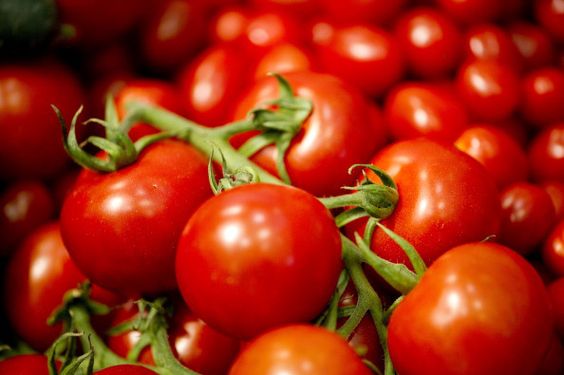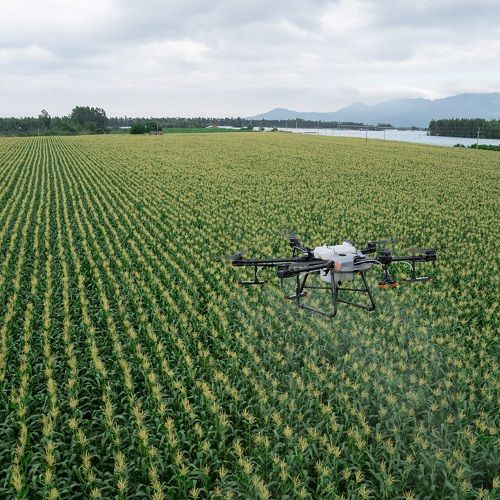Essential Nutrients for Ginger: A Guide to Boosting Yield and Quality
Essential Nutrients for Ginger, a perennial herb with a pungent aroma and spicy flavor, holds significant economic and medicinal importance globally. Its versatile applications in culinary, pharmaceutical, and cosmetic industries have driven a surge in demand. To meet this growing market, farmers are increasingly adopting advanced agricultural practices to enhance ginger production. Among these, precision nutrition emerges as a pivotal strategy to optimize yield and quality. This article delves into the essential nutrients for ginger cultivation, exploring their roles in plant growth, development, and stress resilience. By understanding the intricate nutrient requirements of ginger, farmers can employ data-driven approaches to tailor fertilization practices, leading to higher yields, improved product quality, and sustainable production.
Contents
Essential Nutrients for Ginger
Ginger, like any other plant, demands a balanced diet of essential macronutrients and micronutrients for optimal growth and development. These nutrients play crucial roles in various physiological processes, including photosynthesis, respiration, enzyme activation, and stress tolerance.
Macronutrients
- Nitrogen (N): As a key component of chlorophyll, nitrogen is vital for photosynthesis and plant growth. It contributes to leaf area, stem elongation, and root development. However, excessive nitrogen can lead to vegetative growth at the expense of yield and increase susceptibility to diseases.
- Phosphorus (P): Essential for energy transfer, root development, flowering, and fruit formation, phosphorus plays a critical role in ginger rhizome development. Adequate phosphorus levels enhance root growth, leading to increased rhizome yield and quality.
- Potassium (K): Often referred to as the “quality nutrient,” potassium is involved in various physiological processes, including water regulation, enzyme activation, and disease resistance. It improves ginger’s stress tolerance, enhances rhizome formation, and contributes to flavor development
Micronutrients
- Calcium (Ca): Crucial for cell wall formation, calcium strengthens plant tissues, preventing diseases and improving ginger’s shelf life. It also plays a role in nutrient uptake and translocation.
- Magnesium (Mg): As a central component of chlorophyll, magnesium is essential for photosynthesis. It also activates several enzymes involved in carbohydrate metabolism.
- Sulfur (S): Vital for protein synthesis and enzyme function, sulfur contributes to plant growth and development. It is also involved in flavor compound formation in ginger.
- Iron (Fe): Essential for chlorophyll synthesis and enzyme activation, iron is involved in electron transport and respiration. Iron deficiency can lead to chlorosis and reduced growth.
- Manganese (Mn): Plays a crucial role in photosynthesis, respiration, and enzyme activation. It is involved in nutrient uptake and translocation.
- Zinc (Zn): Essential for enzyme activation and plant hormone synthesis, zinc is involved in protein synthesis and carbohydrate metabolism. It also enhances ginger’s disease resistance.
- Copper (Cu): Involved in photosynthesis, respiration, and enzyme activation, copper is essential for chlorophyll synthesis and pollen development.
- Boron (B): Crucial for cell wall formation and pollen development, boron is involved in sugar transport and calcium metabolism.
- Molybdenum (Mo): Essential for nitrogen metabolism, molybdenum is involved in enzyme activation and nitrate reduction
Nutrient Management Strategies for Ginger
Effective nutrient management is crucial for maximizing ginger yield and quality. A combination of soil testing, plant analysis, and historical data can help farmers make informed decisions about fertilization practices.
Soil Testing
Essential Nutrients for Ginger,Regular soil testing provides valuable insights into soil nutrient levels, pH, and organic matter content. Based on soil analysis results, farmers can develop a tailored fertilization plan to address nutrient deficiencies or excesses.
Plant Analysis
Essential Nutrients for Ginger,Plant tissue analysis helps assess nutrient uptake and status. By analyzing leaf or stem samples, farmers can identify nutrient imbalances and make timely corrective actions.
Precision Fertilization
Essential Nutrients for Ginger,Utilizing smart agriculture technologies, such as soil sensors, drones, and satellite imagery, farmers can monitor crop growth and nutrient requirements in real-time. This enables precise application of fertilizers, reducing nutrient losses and optimizing resource utilization.
Organic Amendments
Essential Nutrients for Ginger,Incorporating organic matter into the soil improves soil structure, water retention, and nutrient availability. Organic amendments, such as compost, manure, and biochar, can provide a sustained supply of nutrients to ginger plants.
Nutrient Efficiency
Essential Nutrients for Ginger,Employing nutrient-efficient fertilizers and application methods can help reduce nutrient losses through leaching, runoff, and volatilization. This not only protects the environment but also improves nutrient use efficiency.
Benefits of Essential Nutrients for Ginger
- Increased Yield: By optimizing nutrient availability, precision nutrition promotes vigorous growth, leading to higher ginger yields.
- Improved Quality: Balanced nutrition enhances rhizome size, flavor, and essential oil content, resulting in superior product quality.
- Reduced Environmental Impact: Precision fertilization minimizes nutrient losses, protecting water bodies and reducing greenhouse gas emissions.
- Sustainable Production: By optimizing resource use, precision nutrition contributes to sustainable ginger cultivation.
- Economic Benefits: Higher yields and improved product quality translate into increased profitability for farmers.
Challenges and Future Directions Essential Nutrients for Ginger
Essential Nutrients for Ginger ,While precision nutrition offers significant benefits, challenges such as data management, sensor technology, and economic feasibility need to be addressed. Future research should focus on developing user-friendly tools and platforms for data analysis and decision-making. Additionally, exploring the interactions between nutrients and other environmental factors, such as water availability and climate change, is essential for optimizing ginger production.




